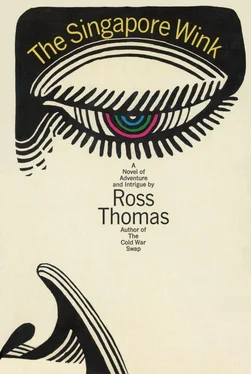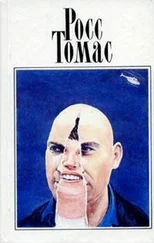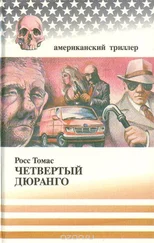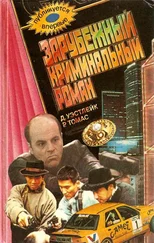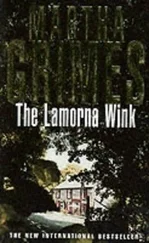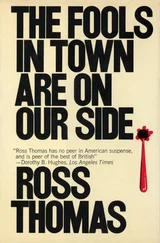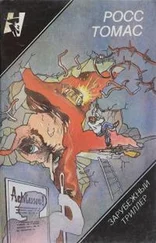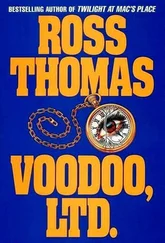“Then there’s more to the story?” I said.
“There’s more. But the godfather’s got to tell it to you. Look at it this way, you find Angelo and you clear your name.”
“Of what?”
“The accident rap.”
“I can live with that.”
“Why don’t you just talk to the godfather?”
“In Washington,” I said.
“That’s right. In Washington.”
“He’ll tell me what it’s all about?”
“Everything.” Callese rose and stood there as though it were all settled. “You’ll go then.” There was no question in his tone.
“No,” I said.
“Think about it,” he said.
“All right. I’ll think about it and when I’m through doing that I’ll still say no.”
“Tomorrow,” Callese said. “I’ll call you tomorrow. Same time.” He started for the office door, paused, and looked around again. “You got a nice little business here, Mr. Cauthorne. I hope it makes a lot of money.” He nodded as if satisfied with a good day’s work, turned, and walked across the showroom towards the street door. Palmisano started after him, but stopped and spun around quickly to me.
“What’s your final price on the Caddy?”
“To you, six grand.”
He smiled, apparently considering it a perfectly splendid bargain. “I used to have one just like it except it was green. Real dark green. What do you drive?”
“A Volkswagen,” I said, but he was already walking across the showroom for another close look at the Cadillac and I don’t think he listened. I don’t think he really cared.
When the Great Atlantic and Pacific Tea Company finally decided that the dog-eared supermarket it had located near La Brea and Santa Monica was a loser, probably because of urban blight and excessive pilferage, it emptied the shelves of a couple of hundred varieties of breakfast food, loaded up the meat case and the cash registers, and moved out to some distant suburban shopping center where the customers were more honest and where there were twenty acres or so of convenient parking.
The land on which our establishment rested was part of a complicated lease-buy-back package which I never fully understood other than that the real estate man who handled the property was willing to give us a five-year deal dirt cheap if we agreed to a stipulation not to “engage in the retail sale of foodstuffs.” We agreed to that and none of the neighbors objected when we opened Les Voitures Anciennes. The neighbors consisted of a Cantonese carryout, a car wash, a sheet metal firm, and three bars.
We kept the remodeling of the building to a minimum and it managed to keep its aura of cat food, Vienna sausage, and Clorox. We moved the interior wall that divided the store closer to the plate glass windows, built the cubicle of an office around a safe that the A&P thought was too much trouble to remove from its cement cage, and used almost four-fifths of the floor space for the paint, body and mechanical shop. We kept three or four cars in the display area to sell, and to show the odd passerby what we could do in the way of the house specialty, which was the restoration of any car built prior to 1942.
Despite the firm’s rather chi-chi name, supplied by my partner in a rare moment of aberration, our balance sheet was surprisingly profitable almost from the first. My partner was Richard K. E. Trippet who, in 1936, had been a member of England’s fencing team at the Berlin Olympics. He had placed third with the foil, losing out to a gentleman from Costa Rica. After having his hand shaken by both Hitler and Goering, Trippet had gone back to Oxford to brood about the state of the world. The next year he joined the Loyalists in Spain, became fascinated with the Anarchists, and now claimed to be chief poohbah (chairman, I suppose) of all the Anarcho-Syndicalists in the eleven western states. Not counting Trippet, I believe there were seven of them. He was also chairman of his Democratic precinct in Beverly Hills and seemed to grow offended when I sometimes accused him of political dualism.
I had met Trippet and his wife Barbara at a Sunday afternoon cocktail party given almost two years before by perhaps the most obnoxious couple in Los Angeles, which takes in a great deal of territory. The couple was Jack and Louise Conklin. Jack was a film editor, one of the best, and Louise was one of those actresses in television commercials who go into a kind of sexual ecstasy over new brands of detergent, furniture polish and floor wax. When they weren’t working, the pair of them liked to cruise the supermarkets in their 2 + 2 Jaguar on the lookout for young, grocery-laden matrons who needed a ride home, but who wouldn’t mind stopping by for a drink at the Conklins’. Once home, Jack and Louise would both put the make on the young matron, and, according to Jack, they got them into bed, or onto the dining room table, or wherever they did it, seventy-five percent of the time. But then Jack Conklin was a confirmed liar and I cut his estimate by twenty-five percent at least. He was also a loudmouth, a bore, and for all I knew he cheated at cards. The reason I was at his cocktail party that Sunday afternoon was that I had no place else to go which, I am convinced, is the only reason anyone ever goes to a cocktail party.
Conklin must have been born a cuckolder. Once he and his wife had made out with a young matron, she and her husband went on the guest list for the next cocktail party. Conklin liked to talk to the husbands; Louise liked to relive old memories with the wives. That Sunday I was on my third drink when I wandered into a discussion held by my future partner, Richard Trippet, his wife, Barbara, and a rather drunk pediatrician who, I suspected, was one of the husbands that Conklin liked to talk to. The pediatrician, a short man of about fifty with a pink shaved head that did nothing for his small face, was force-feeding the Trippets the details of how he had just bought a 1937 Plymouth coupe for $250 and was planning to spend $2,000 more in New York to have it restored to what he described as “mint condition.”
“You know where I found it?” he asked, his left hand wrapped around a highball glass and his right hand slicing the air for emphasis. “I found it in an ad in The New York Times. I picked up the phone, called the guy in Delaware, and airmailed him a check all in the same day.”
“How interesting,” Barbara Trippet said, which was a more polite comment than I could think of.
Trippet, however, seemed fascinated by the pediatrician. He placed a hand on the doctor’s shoulder, leaned forward, and in a low, intimate tone confided: “After careful consideration, I have decided that although there were a great many models manufactured in the United States in the 1930’s, none could match the 1937 Plymouth for either vulgarity or inadequate workmanship.”
The pediatrician considered that carefully, took another gulp of his drink, and came back with: “You think so, huh? Vulgar, huh? Well, just tell me one thing, buddy, what kind of car do you drive?”
“I don’t,” Trippet said. “I have no car.”
A look of what I felt to be true commiseration appeared in the eyes of the pediatrician. “You don’t have a car — in Los Angeles? ”
“No car. I usually walk.”
“Sometimes we hitchhike though,” Barbara Trippet said.
The pediatrician shook his head sadly and swayed towards me. “How ’bout you, mister? You got a car, don’t you?” He seemed to be almost pleading. “Your friend here with the funny accent doesn’t have one. Not even one.”
“Motor scooter,” I said. “A 1947 Cushman.”
By now the doctor was visibly moved. “You ought to get yourself a car. You know, save up enough for the down payment. I got a Continental and my wife’s got a Pontiac and my two kids have both got Mustangs, and now I’m going to get that little 1937 Plymouth and I’m going to love that little car more’n all the rest of them put together. You know why?”
Читать дальше
